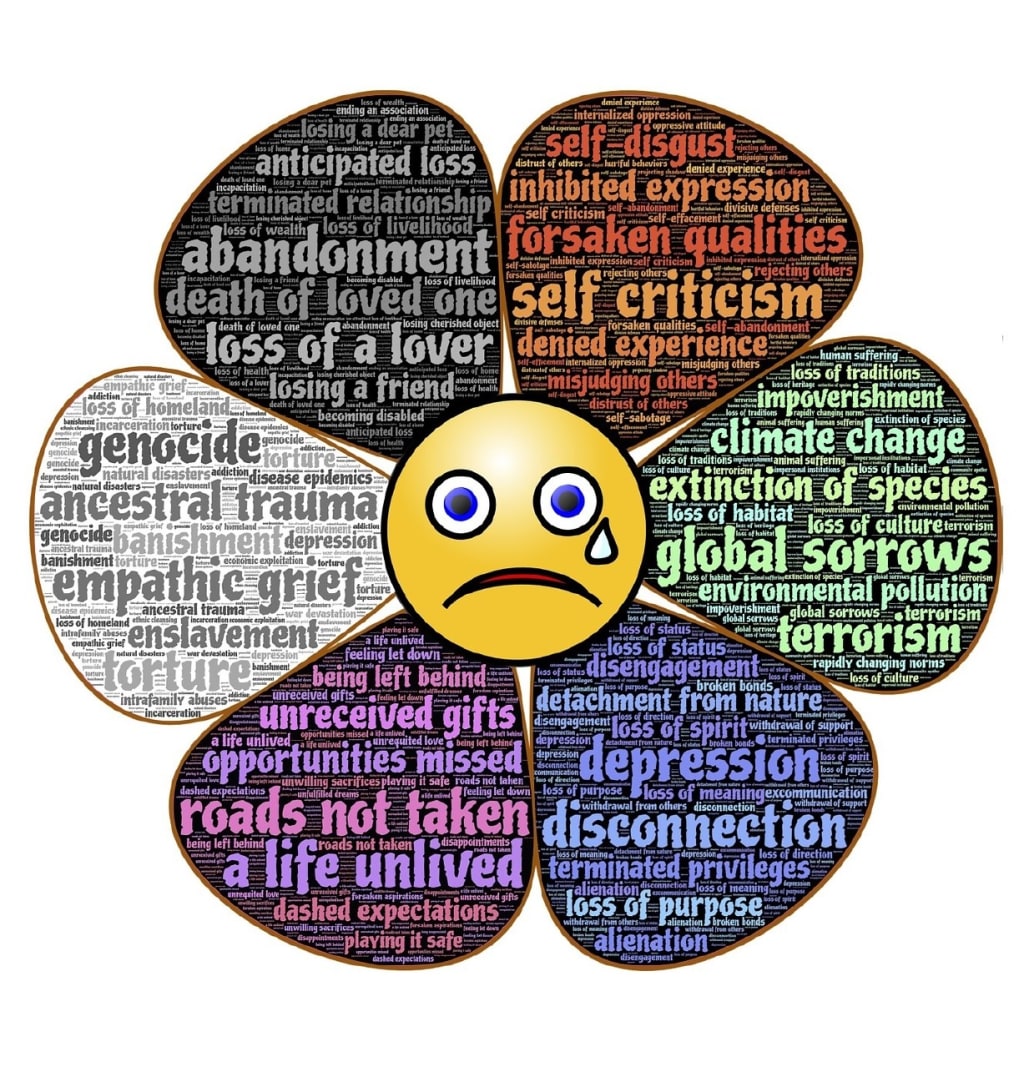Why Do We Sabotage Love?
Understanding Relationship Self-Sabotage

Love is a beautiful and powerful emotion, meant to bring happiness, joy, and fulfillment to our lives. However, we often find ourselves engaging in behaviors that can undermine our chances of experiencing a successful relationship. Relationship self-sabotage is a phenomenon that affects people of all ages and genders, causing them to push away potential romantic partners and destroy their chances of finding true love. In this article, we will explore the reasons behind relationship self-sabotage, its signs, and practical solutions to overcome this self-destructive behavior.
The Root Cause of Romantic Self-Sabotage
Romantic self-sabotage occurs when an individual employs self-destructive actions in a romantic relationship, ultimately preventing a successful outcome (a happy, long-lasting partnership). But why would anyone do this to themselves?
Fear of Getting Hurt
One of the primary reasons for romantic self-sabotage is the fear of getting hurt. Most individuals have experienced trauma or pain in past relationships, leading them to be afraid of betrayal, loneliness, commitment, or being cheated on. By sabotaging a new relationship, they believe they can protect themselves from experiencing the same pain again.
Low Self-Esteem
Another significant factor behind romantic self-sabotage is low self-esteem. People with low self-esteem tend to date partners who treat them poorly in the past, making it difficult for them to believe that their current partner genuinely cares about them. This lack of self-worth can cause them to sabotage their relationships to avoid the perceived inevitable rejection or disappointment.
Trust Problems
Trust issues, often stemming from childhood traumas and past failed relationships, can also lead to relationship self-sabotage. When someone has trust problems, they may find it easier to break off a healthy relationship, believing that their partner is untrustworthy, even without any evidence to support this belief.
Unrealistic Expectations
Individuals with unrealistic expectations of what a relationship should be like may also engage in self-sabotage. When the smallest problem or personality conflict arises, they may end the relationship, believing that their partner has failed to meet their expectations.
Inexperience in Relationships
Some individuals may struggle to meet their partner's needs due to immaturity, poor social skills, or inexperience in relationships. As a result, they may choose to sabotage the relationship before their partner can "find out" how deficient they believe themselves to be.
Deep-Seated Belief Systems and Past Trauma
A recent study in the Journal of Couple & Relationship Therapy by relationship experts Peel and Caltabiano revealed that romantic self-sabotage is often a result of deep-seated false belief systems and past trauma. By understanding and addressing these underlying issues, individuals can begin to break free from the cycle of relationship self-sabotage.
Signs of Self-Sabotage in Relationships
Identifying the signs of self-sabotage in relationships is crucial for recognizing when you are actively undermining your chances of romantic success. Some common signs of self-sabotage include:
Not Addressing Adverse Emotions
Failing to address negative emotions like anger, anxiety, or frustration in a constructive manner can be a sign of self-sabotage. By avoiding these uncomfortable emotions, you may be passively allowing your relationship to deteriorate.
Extreme Suspiciousness
While occasional insecurity is normal, constant suspicion and doubt about your partner's commitment and faithfulness can indicate self-sabotaging behavior. If reassurance fails to alleviate your suspicions, you may be sabotaging your relationship by refusing to trust your partner.
Excessive Criticism
Constructive criticism is essential for a healthy relationship, but excessive criticism can push your partner away and damage your connection. Continually focusing on your partner's flaws and offering no solutions for improvement can be a sign of self-sabotage.
Holding Grudges
Failing to forgive and move on from past hurts can be another indication of relationship self-sabotage. By holding onto grudges, you prevent your relationship from growing and healing, ultimately causing it to fail.
Breaking Promises
Occasionally, life gets in the way, and we fail to keep our promises. However, continually breaking promises to your partner can signify self-sabotage, as it may lead your partner to become dissatisfied and end the relationship.
Avoiding Physical Intimacy
Research has shown that avoiding physical intimacy is a common method of self-sabotage in relationships. By withdrawing from physical affection, you may be unconsciously trying to distance yourself from your partner and undermine your connection.
How to Stop Sabotaging Relationships
If you recognize that you are frequently committing relationship self-sabotage, it's essential to take steps to overcome this destructive behavior. Some practical solutions include:
Admitting the Problem and Identifying Patterns
The first step in overcoming self-sabotage is admitting that you have a problem. Take a thorough inventory of your past relationships and identify any patterns of self-sabotaging behavior. Reflect on the reasons behind your actions, and be honest with yourself about what needs to change.
Seeking Professional Help
An experienced therapist can provide valuable guidance and support in addressing the root causes of your self-sabotaging behavior. They can help you understand your past traumas, false belief systems, and trust issues, allowing you to work through these barriers and develop healthier relationship patterns.
Learning to Trust and Communicate
Building trust and learning to communicate openly and honestly with your partner is crucial for overcoming relationship self-sabotage. By addressing the root causes of your trust issues and working on your communication skills, you can build a stronger, more resilient relationship.
Adjusting Expectations and Focusing on Growth
Lower your expectations of what a perfect relationship "should" look like, and focus on the growth and development of your connection with your partner. Embrace the imperfections and challenges that come with relationships, and be willing to work together to overcome obstacles and strengthen your bond.
Improving Self-Esteem and Self-Acceptance
Addressing low self-esteem and learning to accept yourself as you are is vital for developing healthy relationships. By working on your self-worth, you can attract healthier partners and break the cycle of self-sabotage.
Conclusion
Relationship self-sabotage can be a frustrating and painful cycle to break, but with introspection, effort, and professional support, it is possible to overcome this destructive behavior. By addressing the root causes of your self-sabotage, learning to trust and communicate, and focusing on personal growth and self-acceptance, you can build healthier, happier, and more fulfilling relationships. Don't let the fear of vulnerability and past traumas prevent you from experiencing the love and connection that you deserve.
Thank you for reading this blog post. If you are interested in learning more, Please check out my other articles.
About the Creator
Kathryn Dickman
Am an a graduate with a great sense of humor and impressive writing skills. My writing style is like a breath of fresh air, and my humor adds a touch of playfulness to my work.






Comments
There are no comments for this story
Be the first to respond and start the conversation.